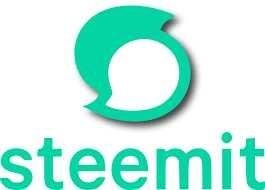Steemit is like a version of Reddit where people are suddenly nice. They're all like "hey welcome to Steemit" or "great post man!". That's because everything you do (post, comment and vote) will give you some returns in the form of Steem or SBD.

Whereas on Reddit, people are mostly anonymous and it sort of reveals their true colors. How would they react if no one knows who they are? Steemit on the other hand tends to reward those who share with others who they really are (with a couple of exceptions). It gives people incentive to be nice.
Is this a good thing?
Positive view: Finally people can be good to each other and it spreads happy vibes around. Sure, that's true, up to a certain extent.
Negative view: Look at the number of hypocrites surrounding us! What's annoying is those who're saying "i'm only here for the community". Take the possibility of earning Steem away and see what that leaves you. A website with no one! Probably not even the founders. Be true to yourself. You know who love the rewards.
Then there comes the delegations for platforms and communities. Recently all the Ds received delegations from Ned via his other account, misterdelegation.
The issue with this is how are they going to spend the delegation? Are they only upvoting themselves? When you give power and responsibility to someone, there will be some abuse, and that's to be foreseen. It's human nature to be at least a little bit greedy.
Other than "free" delegations, there's also the issue of voting bots and the abuse. People are just sending huge amounts of SBD to get big upvotes. Some see it as a problem, others as a free market where you can do whatever you want.

It seems like you'll find problems in every corner of Steemit. Whenever there's people and money clumped together, issues will arise. People get jealous that others are doing better. Some abuse the power they've been given. It seems like whether it's a decentralized community or a centralized community, you'll never solve the issue of corruption and bad governance. Because it's us, we're the weakness. Not the system.